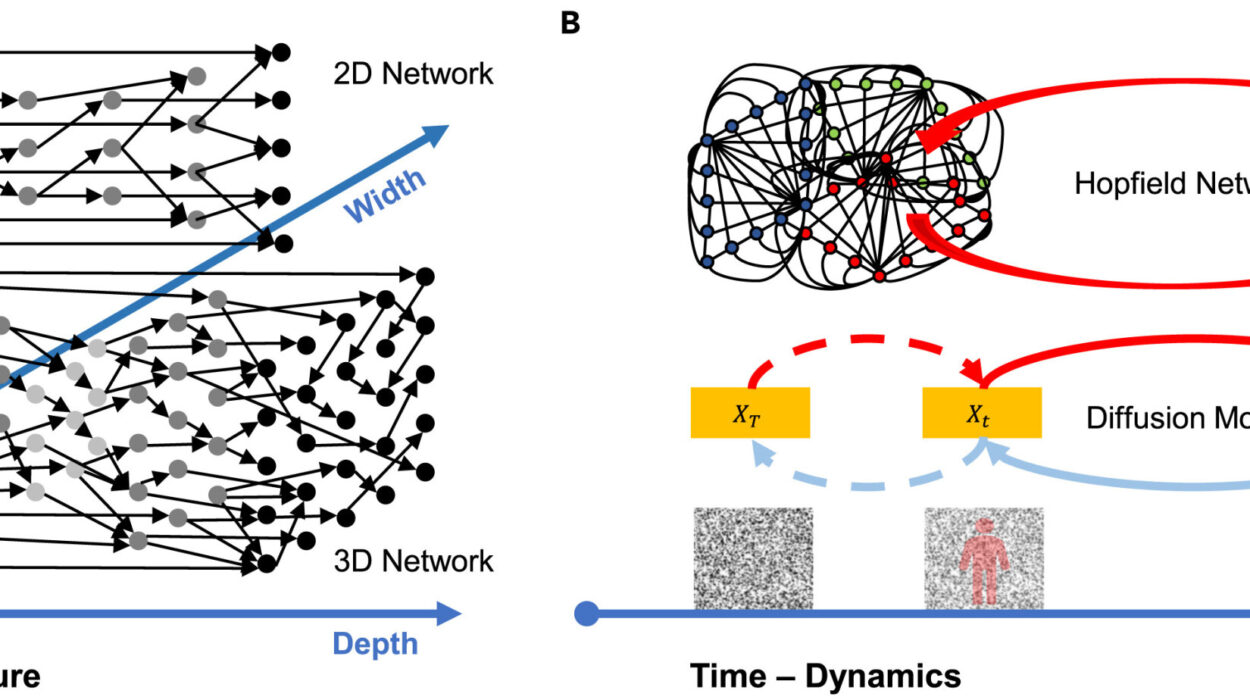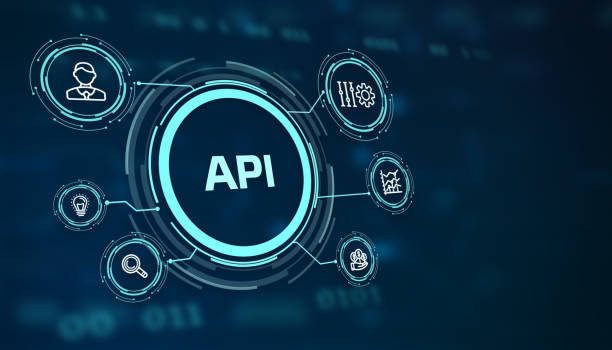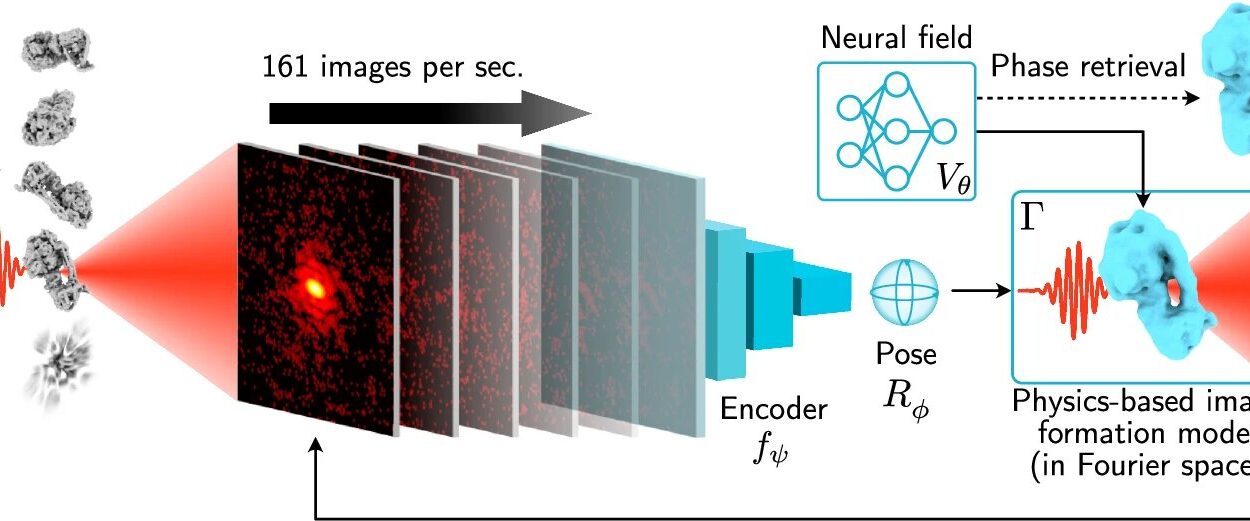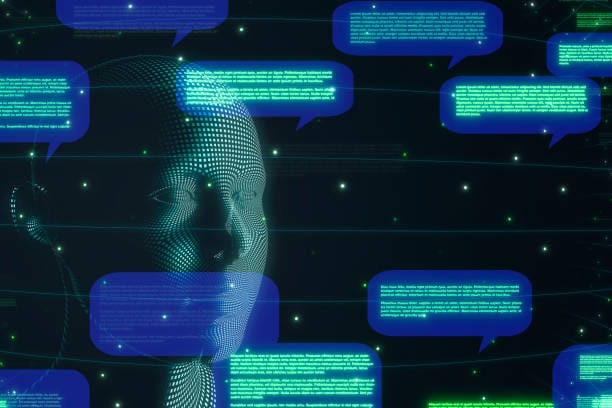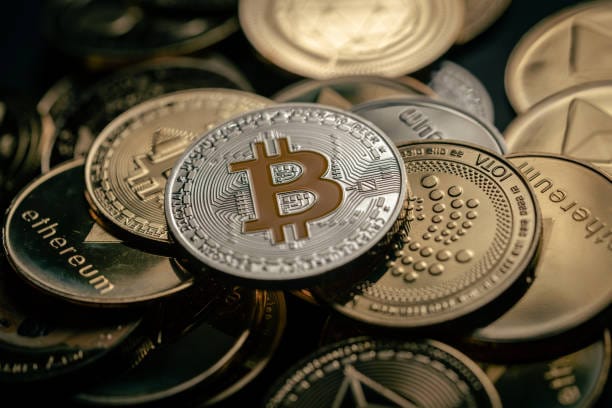In the pre-dawn stillness of a London street, a thin fog drifts around wrought-iron lampposts, softening the orange glow of sodium light. A lone man strides along the pavement, coat collar upturned against the chill. Overhead, an unblinking eye swivels: a CCTV camera mounted high on a stone building, its lens glistening like a glassy insect eye.
The man glances up at it but keeps walking. Perhaps he’s long since stopped noticing them. In Britain’s capital, more than half a million cameras watch every corner, every entrance, every subway tunnel. The average Londoner might be recorded 300 times a day, his steps cataloged by an invisible audience of machines.
This is the reality of privacy in the 21st century. We live under a canopy of watchers — cameras, algorithms, sensors, digital platforms — that record not only where we go, but who we are, what we think, and sometimes even what we dream. Technology has not merely intruded upon privacy; it has redefined it, turned it inside out, rendered it porous and conditional.
Where once privacy was a lock on a diary or a curtain drawn across a window, today it’s a complex negotiation between convenience and vulnerability, anonymity and exposure. It’s a delicate dance performed on shifting terrain, and few of us truly understand the rules.
The Digital Echo of Our Lives
Picture a woman named Ava. She wakes at 6:30 a.m. as her smartphone chirps softly beside her pillow. She swipes the screen and checks her notifications — news alerts, fitness data, a new message from her sister. Before rising, she scrolls Instagram, liking a photo of a Bali sunset posted by a colleague.
Her coffee machine has already started brewing, thanks to a Wi-Fi connection that takes cues from her digital alarm. By 7 a.m., Ava has checked her bank balance, ordered groceries through an app, and set up a Zoom call for later that morning.
She leaves her apartment and steps into a rideshare vehicle summoned via app. As she rides, her GPS pings her location every few seconds, sending data back to servers that record the route, speed, and approximate time of arrival. At work, she logs into her laptop with a fingerprint. Her employer’s network logs every email she sends, every website she visits, every file she downloads.
When she returns home that evening, her smart TV recommends shows based on viewing habits. Her fitness tracker logs her steps. Her voice assistant listens for her commands. And as she drifts off to sleep, her smart thermostat adjusts the bedroom temperature to the perfect degree.
All day, Ava has left behind a shimmering trail of data points—a digital echo of her life. Her likes and dislikes, her movements, her health, her finances, her voice, her image. To her, it feels seamless and convenient. To the systems observing her, it’s a goldmine of insight.
This is the 21st-century paradox: we have never been so connected, nor so exposed.
From Private Letters to Permanent Records
A century ago, privacy was largely physical. It was the domain of closed doors, whispered conversations, and secrets kept in letters folded into envelopes. Mail could be intercepted, phone lines tapped—but such intrusions were labor-intensive and rare.
Then the digital age arrived, bringing computers, networks, and data storage so cheap that saving every scrap of information became trivial. The internet poured accelerant on the fire, and smartphones made the flames leap higher.
In the analog world, memories faded. In the digital world, data endures. The internet never forgets. A regrettable tweet, a drunken selfie, a controversial opinion—all can resurface years later, rippling outward to employers, romantic partners, strangers. Reputation, once built and guarded through social circles, is now vulnerable to viral judgment.
Consider a teenager who posts an offhand joke on social media, only to find it screen-captured and shared by strangers who deem it offensive. Years later, she applies for a job, and her prospective employer runs a background check that includes online activity. One moment of teenage foolishness becomes a permanent record.
Privacy has shifted from being the default to being something we must actively protect—sometimes in vain.
The Hidden Economy of Personal Data
Behind every digital service we adore lies an economy fueled by personal data. Social networks, search engines, shopping apps—all feed upon the information we surrender. Every search query, every click, every scroll is logged, categorized, monetized.
This economy has become so immense that some call data “the new oil.” But that metaphor falls short. Unlike oil, data is not finite. It multiplies, spreading into new contexts. It can be copied, sold, shared, recombined. And unlike oil, it’s deeply personal.
In the world of data brokers, individuals become “profiles.” A man is labeled “Financially Insecure, Age 30-35, Interested in Fitness.” A woman is tagged “Mother of Young Children, Frequent Online Shopper, Possible Mortgage Refinance Candidate.” These profiles are sold to marketers, insurers, lenders, political campaigns.
Some people shrug. “I have nothing to hide,” they say. Yet privacy is not just about hiding wrongdoing. It’s about dignity. Freedom. The right to exist without constant surveillance or manipulation.
When a pregnant teenager in Minneapolis secretly buys a pregnancy test, her purchase data might trigger algorithms that send maternity coupons to her home. That happened to a young woman whose father discovered her pregnancy via Target mailers. Privacy’s erosion can have consequences far beyond marketing annoyances.
The Internet of Things: Silent Watchers in Our Homes
Once, our homes were sanctuaries. Now they bristle with sensors. The Internet of Things (IoT) has woven digital threads into our private spaces.
Our thermostats learn our routines. Smart fridges know when we’re low on milk. Robot vacuums map floor plans. Sleep trackers monitor heart rates. Doorbell cameras record every visitor, sometimes sharing footage with police departments.
Each device offers convenience. Collectively, they build an intimate portrait of daily life. When combined with other data sources, they reveal not just facts, but patterns: when you’re home, when you travel, how you sleep, who visits you.
A smart speaker might record more than commands. In 2019, reports revealed that Amazon workers listened to snippets of Alexa recordings to “improve voice recognition.” Among the conversations overheard were arguments, children’s voices, even moments of intimacy.
The boundary between private space and public observation grows hazier every day.
Facial Recognition and the End of Anonymity
In bustling train stations from Beijing to Chicago, cameras peer down on crowds, scanning faces in real-time. Algorithms compare these faces to vast databases: mugshots, driver’s licenses, social media photos. In a fraction of a second, a stranger’s identity can be known: name, age, address, criminal history.
China has pioneered facial recognition on a national scale. Cameras in cities like Shenzhen can identify jaywalkers, automatically issue fines, and even post offenders’ names on digital billboards.
Western democracies wrestle with similar capabilities. Law enforcement agencies have adopted facial recognition to identify suspects. Retailers use it to track shoplifters. Companies deploy it to tailor marketing messages. The technology promises security—but at a profound cost to anonymity.
The chilling reality is that a person can be tracked anywhere, without consent. In 2020, revelations about Clearview AI, a secretive startup, shook the world. The company scraped billions of photos from the internet—Facebook, Instagram, LinkedIn—to build a database capable of identifying virtually anyone. Law enforcement agencies signed up in droves.
The notion of disappearing into a crowd has become a quaint memory.
Biometrics: The Body as Password
Passwords have long been the keys to our digital lives. Yet passwords are clumsy, easily forgotten, often insecure. Technology’s answer? Biometrics.
Fingerprint readers. Facial scans. Iris recognition. Voice prints. Even gait analysis. Our bodies have become the ultimate password.
Biometrics seem convenient—but they carry hidden dangers. Unlike a password, your fingerprint can’t be changed if stolen. A data breach at a biometric database exposes something irreplaceable. In 2019, hackers breached a UK security firm’s biometric system, leaking fingerprints and facial data for over a million people.
Moreover, biometrics can be collected without consent. Cameras can capture a face from afar. Microphones can record a voice. Data gathered for security may be reused for surveillance or commercial purposes.
The body, once the ultimate zone of privacy, is becoming the gateway to intrusion.
Algorithmic Judgment and the Invisible Bias
Beyond surveillance lurks a subtler threat: algorithmic decision-making. Algorithms assess our creditworthiness, job applications, bail eligibility, insurance premiums. They score us, rank us, sort us.
The goal is efficiency, but the risk is injustice. Algorithms learn from historical data. If that data reflects racial or gender bias, the algorithm inherits it.
In 2019, researchers discovered that an algorithm used in U.S. hospitals systematically underestimated the health needs of Black patients. The software prioritized care for white patients, perpetuating inequities under a veneer of mathematical objectivity.
People denied loans, jobs, or housing often never learn why. Algorithms operate in secret. The right to challenge decisions becomes an uphill battle when the logic is hidden behind proprietary code.
Privacy is not merely about secrecy—it’s about autonomy. When algorithms render invisible judgments, privacy erodes not only for individuals, but for entire communities.
Social Media and the Marketplace of Shame
Once, scandals were local. Gossip circulated through neighborhoods. Today, one misstep can ignite a digital wildfire.
Social media platforms have become arenas of public shaming. A poorly worded tweet. An offhand joke. A viral video. In hours, a private citizen can become a global villain. Strangers dig up personal details—employer, home address, family photos. Threats and harassment follow.
The internet’s permanent memory amplifies the stakes. Years later, a moment of folly resurfaces, derailing careers, relationships, mental health.
Privacy is more than hiding secrets. It’s the ability to control one’s narrative, to define oneself anew. Technology has made reinvention harder. The past clings to us like static electricity.
Children of Surveillance
A generation is growing up under the gaze of cameras, parental apps, and social media. Babies’ milestones are posted online before they can speak. Toddlers appear in YouTube videos. By adolescence, a child might have thousands of digital photos online.
Many parents share these moments out of love. Yet they create a digital record the child never consented to. As these children grow, they inherit a digital identity crafted by others.
Schools increasingly deploy surveillance. Facial recognition for security. Software that monitors students’ emails for “troubling” language. Apps that track homework, attendance, even bathroom breaks. Privacy shrinks, and childhood becomes a data mine.
What does it mean to come of age with no expectation of private space?
Governments and the All-Seeing Eye
Around the world, governments exploit technology to watch citizens. Some regimes deploy mass surveillance to quash dissent. Others use subtler tools to monitor populations under the banner of security.
After the September 11 attacks, the United States built vast intelligence programs. The National Security Agency (NSA) collected metadata on billions of calls. The revelations of Edward Snowden in 2013 exposed how deep the surveillance ran.
The justification was national security. But many critics argue such programs violate civil liberties, chilling free speech and dissent.
In China, the surveillance state has reached unprecedented scale. Cameras identify individuals, track movements, log associations. The government assigns “social credit” scores, rewarding or punishing citizens for behaviors. Buy too many video games, criticize officials online, or miss debt payments — and face travel bans or job restrictions.
Technology has empowered states in ways once imagined only in dystopian fiction.
The Pandemic and Privacy’s New Fault Lines
When COVID-19 swept across the globe, governments and companies raced to deploy digital tools. Contact tracing apps monitored exposure. Health databases tracked infections and vaccinations. Employers demanded health disclosures.
The intentions were noble: save lives, contain disease. Yet new questions arose. How long would data be kept? Who could access it? Could health data be used to discriminate in jobs or housing?
In South Korea, apps revealed not only infection status but individuals’ movements, exposing private details. In Israel, the domestic security agency tracked cellphones to enforce quarantines. China deployed apps assigning citizens color codes to control movement.
Pandemics create moments of exceptional surveillance. The danger is that emergency measures become permanent fixtures. Privacy often erodes in moments of fear.
A Battle Not Yet Lost
Despite these grim trends, privacy is not yet dead. People worldwide are awakening to the stakes. The European Union’s General Data Protection Regulation (GDPR) enshrines the right to control personal data, to know what is collected, to demand deletion. Similar laws are emerging elsewhere.
Technology itself offers hope. Encryption shields messages from prying eyes. Decentralized networks let people communicate without central authorities. Privacy-focused search engines like DuckDuckGo refuse to track users. Browsers block third-party cookies.
Yet laws and tools are only part of the answer. Privacy also demands cultural change—a recognition that our personal lives should not be commodities.
The challenge is vast. The stakes are deeply human.
The Human Cost of a World Without Privacy
What does it feel like to live without privacy? It’s not just about secrets. It’s about the freedom to think, experiment, and grow without fear of permanent judgment.
Privacy gives us space to reflect, to change our minds, to make mistakes. It’s the oxygen of democracy, allowing dissent and debate. Without it, conformity creeps in. People censor themselves, avoiding controversial topics. Creativity suffers.
A world without privacy is a world where the powerful watch the powerless, where secrets flow upward to governments and corporations, while ordinary people live under constant scrutiny.
Technology has brought marvels: medical breakthroughs, instant communication, vast knowledge. Yet it has also summoned new perils. The same networks that connect us can isolate us. The same algorithms that recommend music can manipulate opinions. The same cameras that protect us can imprison us.
The battle for privacy is the battle for what it means to be human.
Choosing Our Digital Future
Standing at the dawn of the 21st century, we face a profound choice. Will technology serve humanity, or will humanity be shaped to serve technology? Will privacy become a luxury reserved for the wealthy and powerful, while the rest of us live in digital glass houses?
The answer lies not only in laws or devices, but in values. We must decide what kind of world we wish to inhabit—and what we’re willing to sacrifice to preserve our private selves.
For privacy is not merely a legal right. It is a human need. A shelter for thought. A space to breathe.
The cameras still watch the London streets. Ava still wakes to her digital echo. The world spins faster and faster, data pulsing through invisible networks.
Yet the future remains unwritten. And in the flicker of a cursor on a screen, in the hush between notifications, we still possess the power to choose what parts of ourselves we share—and what we keep our own.

